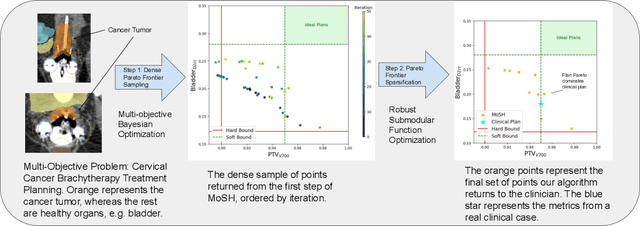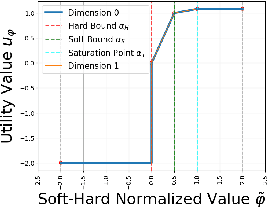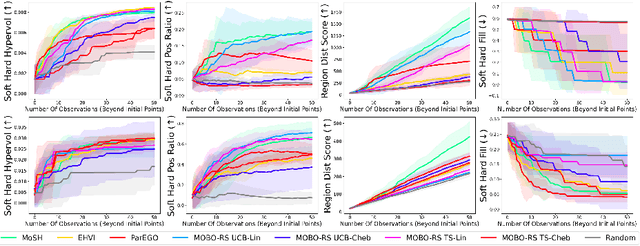Thomas Niedermayr
MoSH: Modeling Multi-Objective Tradeoffs with Soft and Hard Bounds
Dec 09, 2024



Abstract:Countless science and engineering applications in multi-objective optimization (MOO) necessitate that decision-makers (DMs) select a Pareto-optimal solution which aligns with their preferences. Evaluating individual solutions is often expensive, necessitating cost-sensitive optimization techniques. Due to competing objectives, the space of trade-offs is also expansive -- thus, examining the full Pareto frontier may prove overwhelming to a DM. Such real-world settings generally have loosely-defined and context-specific desirable regions for each objective function that can aid in constraining the search over the Pareto frontier. We introduce a novel conceptual framework that operationalizes these priors using soft-hard functions, SHFs, which allow for the DM to intuitively impose soft and hard bounds on each objective -- which has been lacking in previous MOO frameworks. Leveraging a novel minimax formulation for Pareto frontier sampling, we propose a two-step process for obtaining a compact set of Pareto-optimal points which respect the user-defined soft and hard bounds: (1) densely sample the Pareto frontier using Bayesian optimization, and (2) sparsify the selected set to surface to the user, using robust submodular function optimization. We prove that (2) obtains the optimal compact Pareto-optimal set of points from (1). We further show that many practical problems fit within the SHF framework and provide extensive empirical validation on diverse domains, including brachytherapy, engineering design, and large language model personalization. Specifically, for brachytherapy, our approach returns a compact set of points with over 3% greater SHF-defined utility than the next best approach. Among the other diverse experiments, our approach consistently leads in utility, allowing the DM to reach >99% of their maximum possible desired utility within validation of 5 points.
 Add to Chrome
Add to Chrome Add to Firefox
Add to Firefox Add to Edge
Add to Edge